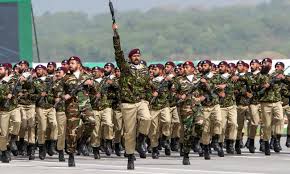The case of Khulbushan Jadhav has quickly become one of the most well-known espionage cases that has garnered attention of the international community, in particular after the International Court of Justice’s (ICJ) judgment. The judgement, legally obliges Pakistan to carry out a “review and reconsideration of Jadhav’s conviction and sentence” and provide Consular Access to
The case of Khulbushan Jadhav has quickly become one of the most well-known espionage cases that has garnered attention of the international community, in particular after the International Court of Justice’s (ICJ) judgment.

The judgement, legally obliges Pakistan to carry out a “review and reconsideration of Jadhav’s conviction and sentence” and provide Consular Access to Jadhav. Since then, Pakistan has promulgated the International Court of Justice (Review and Re-consideration) Ordinance, 2020 that allows Jadhav to file an appeal before the Islamabad High Court (IHC) for review and reconsideration of his conviction and sentence. However, the Government of India expressed their unwillingness to avail the statutory remedy.
The Government of India has made two demands of Pakistan prior to availing the statutory remedy. First, an unimpeded and unhindered consular access should be granted to Jadhav; and second, that the Indian High Commission should be given access to crucial documents such as ‘power of attorney’ signed by Jadhav, FIRs, charge sheet, orders and judgements by the Military Court of Pakistan.
Pakistan till date has offered Consular Access to Jadhav a total of three times. The first two consular access were refused by the Government of India on grounds of them being unimpeded and unhindered. However, the Government of Pakistan has offered a third consular access to Jadhav, this time catering to all the concerns raised by the Government of India.
Moreover, India claims that the delays in the appointment of a lawyer for Jadhav is due to Pakistan’s refusal to grant the Indian High Commission access to crucial documents. However, the same contention has also been resolved by Pakistan. The IHC have clearly stated that in case of such refusal by the State of Pakistan, the Indian High Commission may submit a request to the Court for access to the requisite documents.
However, India still refuses to cooperate with Pakistan claiming that the trial without would compromise on their sovereign immunity.
In order to discharge its legal obligation, the State of Pakistan filed a petition before the IHC to appoint a legal counsel for Jadhav. The IHC sought assistance from the Indian High Commission on how to proceed forward with the case. Barrister Shahnawaz Noon, the Indian High Commission’s counsel in another Indian prisoner’s case (Muhammad Ismail), was present at the hearing, and was asked by the Court to get instructions from its client and report back to the Court. On December 01, 2020 Barrister Noon informed the IHC that the Deputy High Commissioner of India in Pakistan would like to assist the Court in Jadhav’s case, and were deliberating upon the appointment of a lawyer.
Following this, the Ministry of External Affairs of the Government of India (MEA) released a statement claiming that Barrister Noon acted under pressure of the establishment and misrepresented the position of the Indian High Commission. They claimed Pakistan was trying to link the case of Jadhav with another prisoner’s case, and have thus has failed to respond to the core issues of the case.
Pakistan rejected India’s stance as ‘misleading’ and clarified that the two cases are not linked together. Moreover, the offer of third consular access was reiterated and the Government of India was urged to appoint a legal counsel for Jadhav.
It has been repeatedly reiterated by the Ministry of Foreign Affairs that they are trying to give effect to the judgment of the ICJ however, since the beginning, India has failed to give a satisfactory response. India continues to push the narrative that the meetings are hindered even though Pakistan has tried to fulfil India’s terms by even allowing the Indian High Commission to assist the Court with the trial. These delays and hinderance by India aid in Pakistan not being able to give effective implement the ICJs decision, which only exposes Pakistan to greater international scrutiny and criticism. However, if India is committed to ensuring a fair trial for Jadhav, it needs to stop obstructing the judicial process and cooperate with Pakistan.
- Has the US Learned From its Experience in Afghanistan? - July 20, 2022
- US’ Lawfare against Russia - May 16, 2022
- Is the US really behind the regime- change? - April 23, 2022





















Leave a Comment
Your email address will not be published. Required fields are marked with *